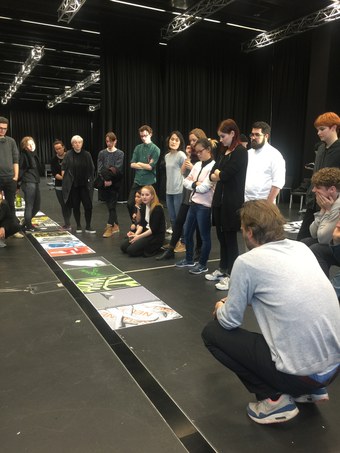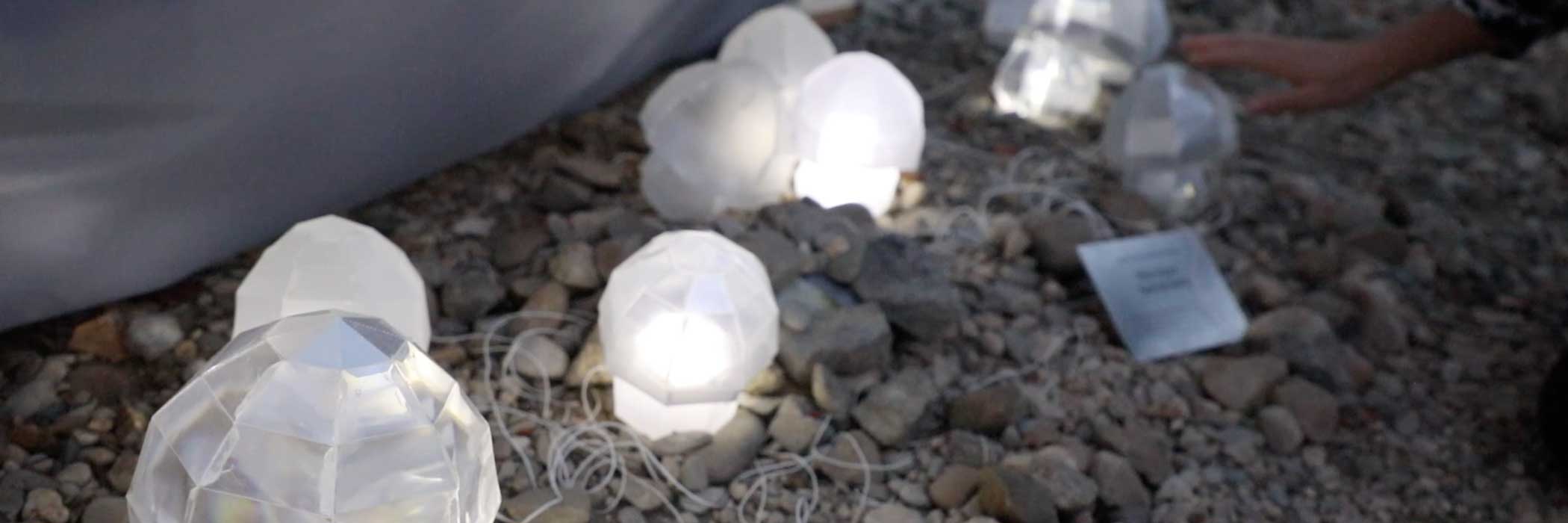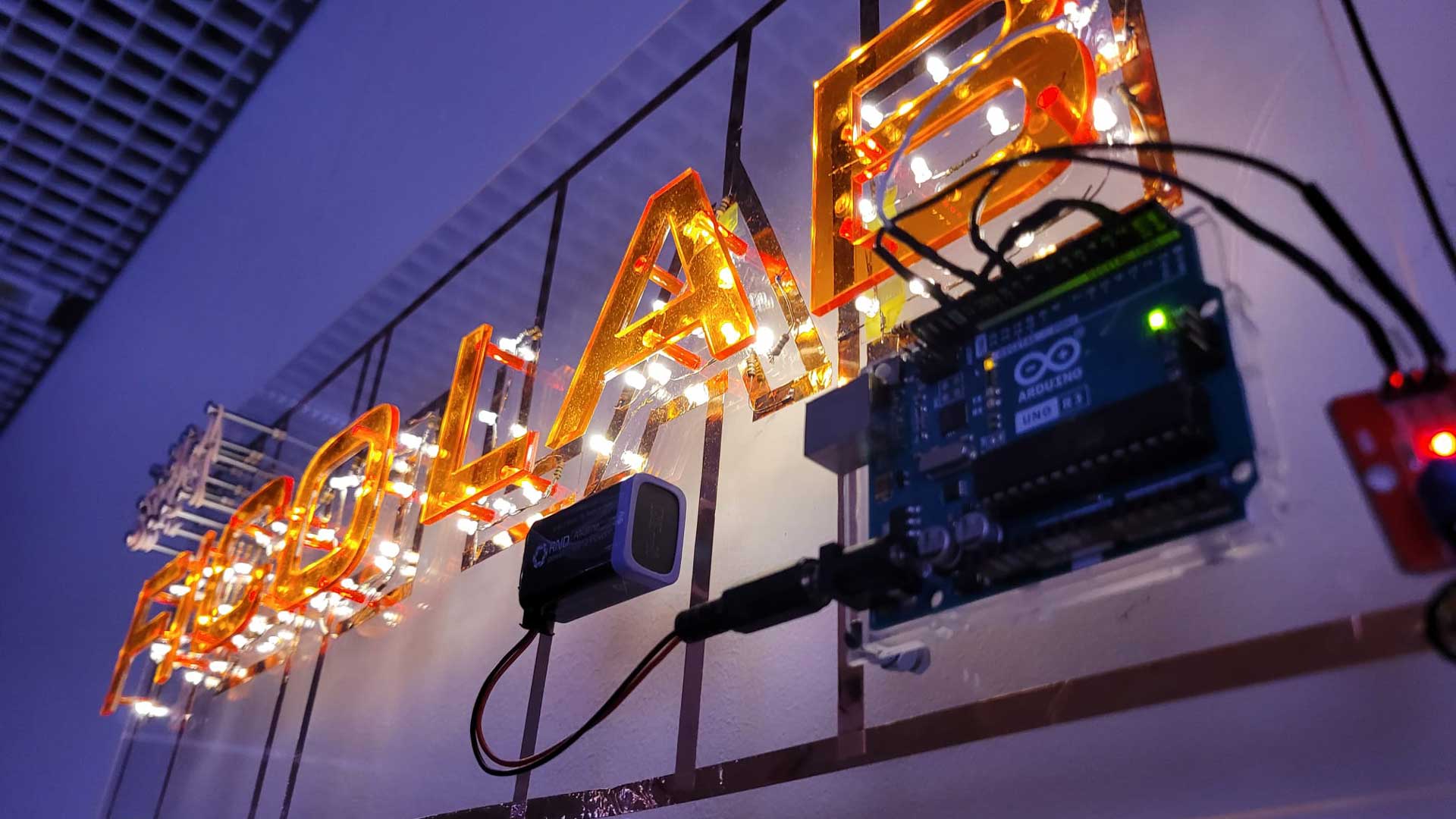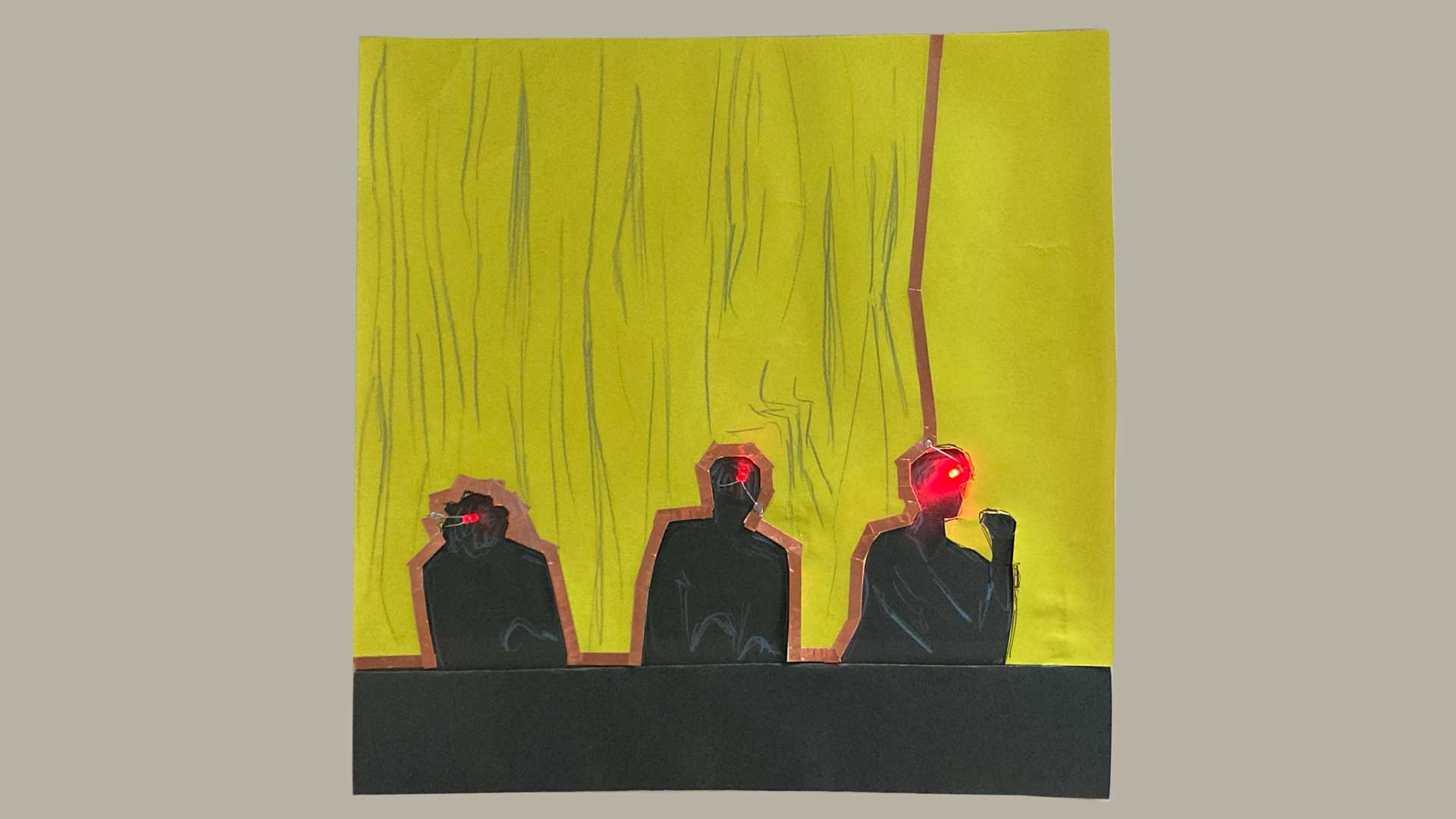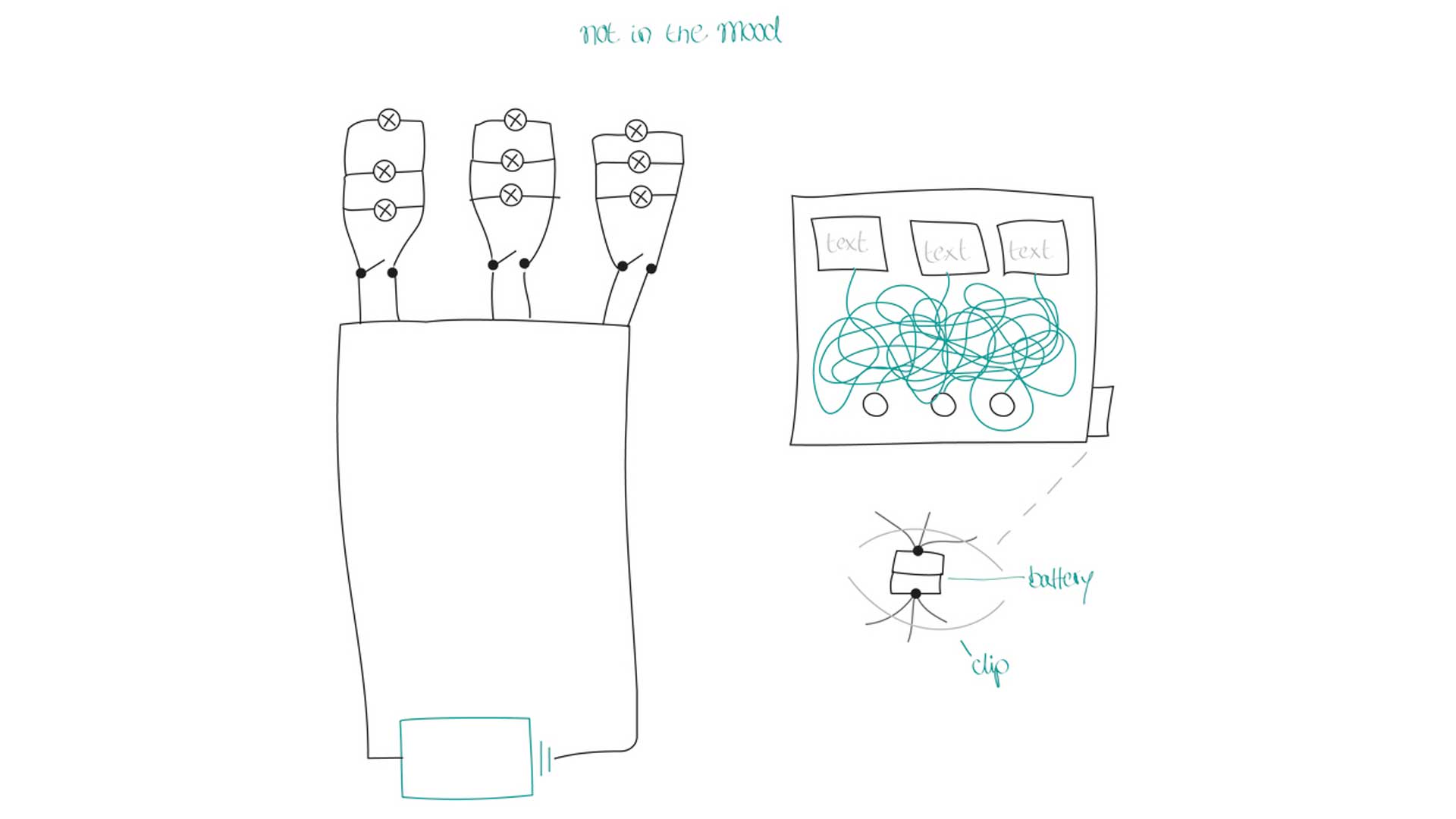Tender Computing
Tender Computing is a concept and workpractice that explores a soft, experimental and playful way of Physical Computing, which means the creative design of interactive objects and spaces. The module provides a project based introduction to Physical Computing and the Tender Concept in a curated lab-like atmosphere.
Key data
- ECTS points
- 2 ECTS
- Next start
- 26. Januar 2026
- Duration
- 1 week
- Final application date
- 29. Dezember 2025
- School days
- 5
- Teaching language
- German / English
- Place
- Basel
- Fee
- CHF 900.– (view fees)
- Studying type
- Full-time
Mobile navi goes here!
In order to design interactive objects and spaces, the participants learn how to design and assemble basic electronic circuits and how to code them. The course critically discusses functionality and non-functionality through the process of making and focuses on the variety of aesthetics of electronic circuit designs through handcrafting. The participants learn how to craft sensors and actuators on their own as well as to use industrial sensors as inputs and outputs in a concrete project using iterative processes in the development of a prototype with Arduino. They learn how to work independently with open source tools and information. They deepen their understanding about the use of technology and learn how to communicate a narrative through crafted electronics and coding.
